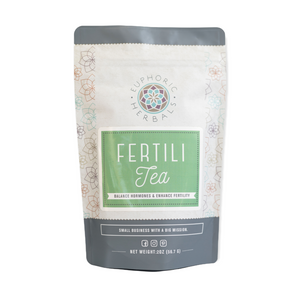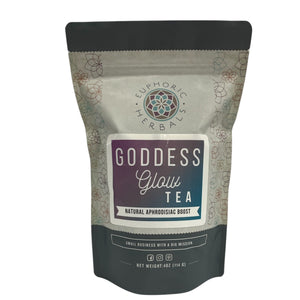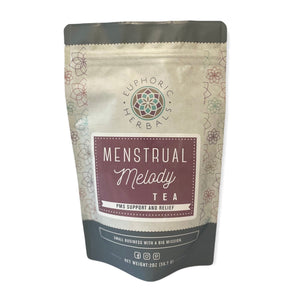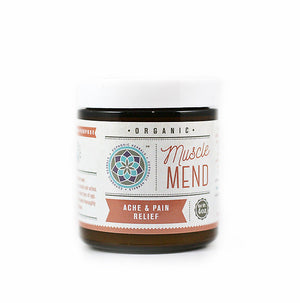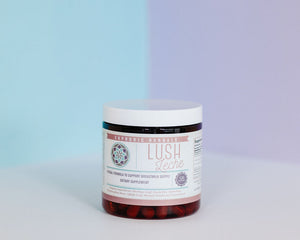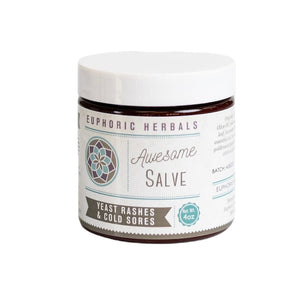Allergies are one of the most common ailments people deal with and can really ruin your day (or month). And though severe allergies typically need medical attention, there are some excellent natural allergy remedies than can help more moderate reactions.
So if you're tired of sneezing, itchy eyes, congestion, etc., here's some background on allergic reactions and a look at the top homes remedies for allergies that can really help out.
Why Do You Have Allergies?
What we call "allergies" are actually a reaction of your immune system to something it perceives as a threat, even though the substance is harmless.
For example, the immune system of one person may react to pollen or a particular food, like peanuts, even though these substance aren't really going to cause your body harm.
During an allergic reaction, your body produces a chemical known as histamine. Its purpose is to counteract the specific allergen your body has sensed and is responsible for most of the symptoms you're familiar with: runny nose and eyes, sneezing, coughing, etc. (all designed to get the allergen out of your body).
Your body also produces immunoglobulin E (IgE) antibodies to make sure it recognizes the allergen the next time it enters your body, which is why people often have allergies for life.
Why people develop allergies in the first place is still a mystery, although most experts agree that it's immune-related. Some point to genetics as a large factor, while others think that underlying causes like inflammation, leaky gut, and toxic overload are also potential factors.
There are also different types of allergies, including food allergies, seasonal allergies, and an allergy to something specific (like latex or cats).
Most of the remedies in this article provide the best help for seasonal allergies (aka hay fever). Food allergies are much more difficult to deal with and often require diet changes and the avoidance of certain foods.
Top Natural Home Allergy Remedies
Stinging Nettle

Stinging nettle is one of the most used herbs for allergy relief. Ironically, if you touch this plant with your bare hands, you'll get an allergic rash, but taken internally it has an anti-inflammatory and anti-allergenic effect. (1)
This is most likely because nettle seems to have natural antihistamine properties, which can calm symptoms started by the release of histamine.
Herbalists have been using nettle for hundreds of years for hay fever, and it's most often used as a tincture.
Nasal Rinse
A nasal rinse is one of the best remedies for cleaning out your sinuses. Although it won't get to the root cause of the problem, it rinses out allergens and can ease congestion and breathing.
Many think nasal irrigation is something new, but it has been used in Ayurvedic medicine for at least several hundred years.
Studies show that regularly using something like a neti pot to cleanse your sinuses can help with allergies as well as sinusitis and asthma. Just use filtered water when you rinse so that it's free of chlorine. (2)(3)
Local Raw Honey
Raw honey has become one of the most well-known natural allergy remedies in recent years. There is a little research and many anecdotal stories supporting honey for allergies, but no one has really figured out why it works yet. (4)
The leading theory is that raw honey contains bee pollen, which offers immune support, and other live enzymes that may also help. Use local raw honey whenever possible, since it will contain local pollen for your body to get used to, and take about a tablespoon a day.
Quercetin

Quercetin is an antioxidant found in many different plant foods like cherries, berries, citrus, peppers, cruciferous vegetables, and leafy greens.
Studies done on isolated quercetin have shown that it can inhibit histamine production and relieve seasonal allergy symptoms and potentially food related ones as well (specifically peanuts). (5)(6)
This is a good reason to fill your diet with quercetin-containing foods, but during allergy season you might also want to consider a quercetin supplement (made with vitamin C or bromelain for better absorption).
HEPA Filter
HEPA stands for 'high-efficiency particulate air' and is one of the best air filters to use if you suffer from allergies on a regular basis. A HEPA air purifier will particularly help with indoor allergens- like dust and pet dander- but can also trap outdoor allergens (pollen) that find their way indoors.
You can also replace your vacuum with one that uses a HEPA filter to more effectively get rid of allergens when you clean.
Probiotics
Probiotics can be one of the top natural allergy remedies, but keep in mind that they won't work instantly. By building up your gut health with probiotics, you'll also be making your immune system stronger because the two are closely connected. This, in turn, may reduce allergies as your immune system starts to function better.
Research is still ongoing in this area, but several studies do link regular probiotic use to decreased allergies. (7)
Essential Oils

Specific essential oils can be very useful during allergy season because they can reduce inflammation, ease congestion, and help your body detoxify of toxins.
Peppermint oil and eucalyptus oil are two of the most frequently used. Both can help break up congestion and clear your breathing. You can use them in a diffuser, diluted in a carrier oil and applied to your chest, and even added to a load of laundry. (8)
Frankincense is another essential oil that has positive effects on your immune system and can help with allergy symptoms when inhaled. (9)
Other oils that can be helpful include lemon, lavender, and tea tree.
Chamomile
Chamomile has anti-inflammatory properties that can be helpful for puffy, itchy eyes during allergy season. (10)
To use it, make a strong tea with a few chamomile tea bags or the loose herb. Steep and let it cool (you can also refrigerate it) and apply the tea bags or a cloth soaked in the tea to your closed eyes.
Note: This is only an allergy remedy for those who aren't allergic to chamomile. Test on your skin before applying to your eyes.
Acupuncture
Acupuncture is an ancient technique with many benefits, including potentially improving allergy symptoms. Among other things, acupuncture helps the immune system, which could be why some studies show it can improve allergies. (11)
If you want to try it for yourself, find a qualified acupuncturist who can help and discuss your needs with you.
Spirulina

Spirulina is a blue-green algae regarded by many as a superfood. Not only is it rich in nutrients and antioxidants, it can also be used as a natural allergy remedy according to research.
One study found that 2 grams of spirulina powder a day reduced common allergy symptoms like sneezing, congestion, runny nose, and itchiness. You can add it to food (like smoothies) or take it in capsules to see if it helps. (12)
Anti-Inflammatory Foods
If you want to combat allergies long-term, many natural health experts recommend switching to an anti-inflammatory diet. This means eating more of foods like garlic, leafy greens, and probiotic-rich sauerkraut, kefir, kombucha, etc.
Once again, this strategy will take time to produce results, but it could end up helping more than your allergies!
Other Herbs
There are many herbs that can be used alone or in combination to provide relief during allergy season. Here are some to consider:
- Echinacea- Often thought of during cold and flu season, echinacea can also help with allergies by balancing your immune system and stimulating your lymphatic system.
- Dandelion- Dandelion root works against allergies by boosting liver function. This has the benefit of helping your body break down chemicals like histamine.
- Mullein- Mullein is primarily an herb for the lungs and can help with respiratory allergy trouble.
- Goldenrod- Often unjustly accused of causing allergies, goldenrod can actually offer allergy relief when taken as a tincture.
- Combinations- Several herbs combined together often have a more powerful effect than just one alone. Try finding a local herbalist to help you with an allergy formula specifically for you, or try something like this Pollen Defense extract.
Precautions
While all the herbs listed here are generally safe, there is always the possibility they can cause an allergic reaction in certain individuals. Consult with an herbalist, midwife, or health professional before using them if you are pregnant or breastfeeding.
In case of severe allergic reactions, always seek medical help.
Using Natural Allergy Remedies to Find Relief
Now that you know about some of the best natural allergy remedies, you'll be much better equipped to face hay fever season!
Remember, it may take some experimenting to find the remedy (or remedies) that works best for you. In the case of herbs, it's always great to consult a professional herbalist so that you can get personalized help.
And don't forget to always use quality herbs and supplements to give your body the most help possible.
Disclaimer: This post is for informational purposes only. It does not constitute medical advice and should not be substituted for medical advice. Please consult your health care provider, herbalist, midwife, or naturopathic physician before taking herbs, supplements, etc. Here's the link to our full disclaimer.






















































